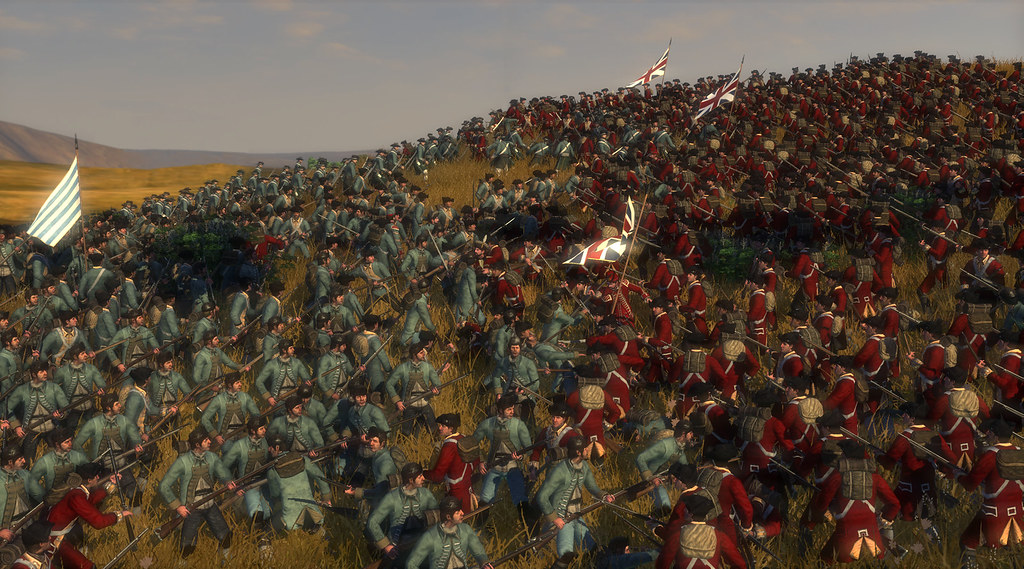Hi Adam,
I quite like strategy games like Total War, so if you're not into strategy then you mightn't like the game. However, if you do, you'll love it...it's mainly based around economy, which in turn means you can make your Empire bigger (And support your war effort). You can trade with different countries, sign alliances, etc.
The game at the start is very complex, and even after a few months of playing there's still a lot to un-cover/find out. For example, the actions you take earlier in the game can influence how it spans out in the long run, so by even changing something minor, you can effectively change the course of history...so it means that each time you play the campaign, you can end up with different results.
The games nations are split up into two catagories: Major, and Minor. Major nations include countries such as Britain, France, Spain, Sweden, Marartha Confederacy, Prussia, Russia, United Provences etc. The game itself is generally historically correct from the start of 1700, but of course this changes as you make alterations to your Empire, and major nations can dissapear quite quickly if you decide to invade (Such as Spain, which usually plays a major part in the game, if you leave them to grow). By letting nations grow you can often find yourself in bother, since they'll become much more difficult to defeat, if you plan to spread your influence accross Europe. Minor nations are not playable nations, but they are still treated like any major country in your campaign (Ie, you can trade with them, sign alliances, invade, and so on). At the start of the campaign there are LOADS of minor nations in Europe, but these generally get swallowed up by growing nations (such as Poland Lithuania). Other 'nations' like Ireland aren't even minor nations, as of course they come under British Rule at that time. (Altough you can grant a country independance by letting them rebel, and then in turn will make a minor nation). Minor nations tend to appear and dissapear, whereas major ones don't, IF you don't decide to invade them.
Different nations have different advantages and dis-advantages. I myself like to play as Britain, since you don't have any neighbours on your land. Other smaller countries like Prussia and the United Provences tend to fall victim to larger neighbouring countries like France, as mentioned earlier, so Britain is a good country to start with, but requires you to learn fast, since as you'll know, Britain has a lot on its plate in the 1700's...such as hostile relations with countries such as France, which in turn like to try snap up your colonies in America, which can then lead to a domino type effect where several countries fall into war with eachother, and that can be quite difficult to cope with unless you're able to support your war effort.
The main 'problem' in making progress (Invading countries), is that of course, they don't like you - so they nearly always rebel, which can give you problems if you don't squash them quickly, because, not only will you lose that region, they may attack any land owned by you that's near them, since they are now at war with you too. But, you can sometimes nip rebellions in the bud, by lowering taxes, or by keeping your forces there, which will deter them from rebelling against you.
Anyway...going on and on and on here


...i'll try summarise the game into a few points here.
* Your main goal is to spread your influence accross the globe. To do these you need to fight land and sea battles...you have the option to either have these battles faught by the computer (Going on statistics), or you can fight them yourself...I tend to lean towards the computer battle, since I like the political side of it more than the actual battles...but quite often too, when it looks like I might lose when weighing up statistics (Ie how many men you have VS how many men they have), i'll play the battle myself.
*You can't go squashing every country like a man man...politics is extremely important, as having alliances will mean that 1) They'll help you 2) It isn't your problem. In other words, their army doesn't cost you anything, whereas by making huge armies yourself, you'll often find yourself burning massive holes in your pocket. So relations with other countries are important, but it's also important to pick the right ones to deal with.
*The game itself is excellent. Battles are great fun, and the political side of it is very interesting, if you like that sort of thing. The graphics are fantastic, and battles range from land battles, to sea battle, to seiges, or even actual 'scenarios', that did actually happen.
*You can make any country powerful, but the way you go about it will either be a make or break situation. Some countries have advantages, such as Britain, because you're sitting on an island. The disadvantage of that is of course, you can't really have a 'Blitzkrieg' approach to things, unless you have somewhere in Europe to base yourself. (I like to take France). Being a country that lives next door to another country can be a good or a bad thing, since on the good side of things, it means they're able to help defend you...However, if your neighbours don't like you, you can potentially find yourself in a rather awkward situation.
Phew...a lot of writing there

...but yeah, I LOVE the game, and if you're into that sort of thing, you'll love it like I do.
Here's a few screens for you:

Campaign Map.

Naval Battle.

Land Battle
There's a good few pics on Flickr to look at! I have a load back here, but having problems uploading

Kind Regards,
Jack.

